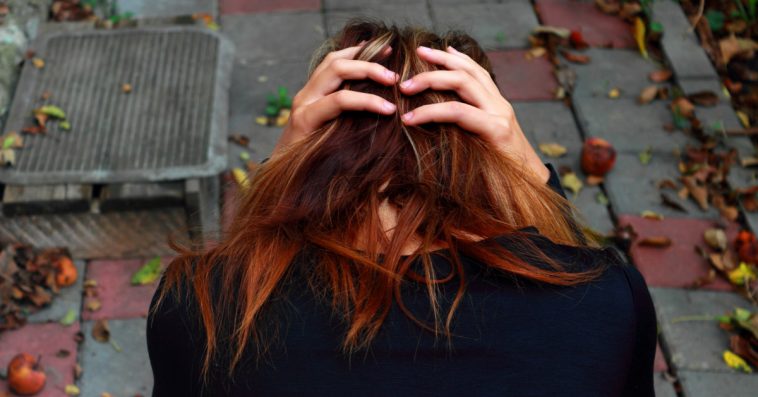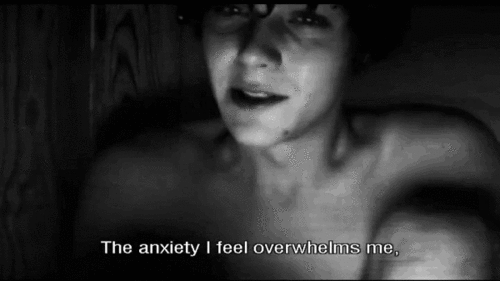Many people claim that they have anxiety when they feel nervous or anxious about something they are anticipating. But, anxiety disorders are more than feeling nervous or “on-edge” when you have a big day coming up. Anxiety disorders are much more serious than this.
Anxiety disorders involve much deeper, more problematic, and debilitating factors. According to the Anxiety and Depression Association of America, 40 million adults in the United States suffer from one or more forms of anxiety. Additionally, people with an anxiety disorder are three to five times more likely to go to the doctor and six times more likely to be hospitalized for psychiatric disorders than those who do not suffer from anxiety disorders. Many times, anxiety disorders can be a true setback for many people, debilitating them and holding them back from many things in life.
As someone who personally suffers from a diagnosed anxiety disorder, I can honestly say that having anxiety is no easy task. Some days are a struggle to get by, feeling as though you're crawling out of your skin with worry, fear, anticipation–for absolutely no reason. There are other days, however, when I forget I have a condition at all. It's a never-ending game of “let's see if my anxiety allows me to live today.” While it's not easy having anxiety–especially when it's at its worst–there are ways to spot a worsening disorder to intervene before you are in a full-blown episode, unable to leave the house.
8. You've lost a significant amount of weight.
Weight loss and anxiety disorders are often times synonymous. When our bodies go into fight or flight mode, hunger is often times suppressed and we forget we need to eat to stay alive. Your brain is overactive with worry, fear, and stress, that the message revolving hunger and food gets lost in the mess. When you realize that you're skipping a meal or two during the day because of your anxiety, it's time to get help.
Talk to your doctor about ways to increase your appetite, or try to buy foods that you're going to want to eat–even if you don't feel hungry. It's important to not allow your anxiety to take over your life in such a way that it makes you physically ill.
7. Little things begin to work you up–a lot.
We all know what it's like to be disappointed or upset with something that goes wrong in our life–but, not everything is the end of the world. Usually, we learn to let things roll off our back when it's something small, but when our anxiety acts up even the smallest things can seem big. Sure, we all hate getting stuck in traffic or when our family eats our leftovers we were looking forward to all day, but when these small problems start to become huge catasrophes–it can be because your anxiety is worsening.
Try to stop and ask yourself why you're angry and why you're reacting so strongly in that given moment. Stop and access the situation at hand and try to see the bigger picture.
6. You're testier and irritable with people.
Having anxiety usually puts your mind “on edge” and makes you have way less patience than you would normally. Your body is in “fight or flight” mode, and when your anxiety is getting worse, it'll be way more apparent. Your emotions are an all-time high when your anxiety is worked up and it often times makes you more defensive. When people start asking you questions like “what's wrong,” and “are you okay,” it makes you hyper-aware that something might be wrong–and you start to freak out. Your first response is to immediately jump down their throat and scream–which, is counterproductive.
If you feel yourself on edge more, take note of when and where it happens. If you are seeing a professional about your mental health, make sure you mention that you feel more on edge and much more emotional lately than you have been in the past. Testiness can be a sign that your anxiety is worsening, but dealing with it before it gets out of hand can make it more manageable.
5. You feel like a scatterbrain and things in your life are “messy.”
When your anxiety is getting worse, you're pretty much “all over the place.” Because you're so fixated on worry and your mind on overdrive, many times things around you fall out of place. You become forgetful and you misplace things, your house/apartment begins to look pretty messy, and your desk at work is less than clean. Deadlines are slipping away from you, you forgot to send in your rent check, and you have a bunch of unanswered text messages. Forgetting to do things and feeling as though “you're all over the place” is a common sign that your anxiety is getting worse. Many of us take on too much in order to keep our anxiety at bay, but, when it creeps up behind us, we completely panic.
If you feel as though your life is becoming a chaotic mess, be sure to start making lists and setting reminders for yourself, so you don't fall behind in anything. Talk to a professional about ways you can combat the overdrive and find new, healthy coping mechanisms, instead of piling your plate so high that you'll inevitably drop it.
4. You think everyone is pushing you away when you're the one who may be doing the pushing.
One of the major signs of anxiety is overthinking and stressing about things that may not happen. When it comes to relationships–both romantic and platonic–we tend to overthink things when we're in an anxious state of mind. We've all been there–we stay up at night re-reading text messages looking for subtle hints and clues as to what they “really mean” or what “went wrong.” In reality, stressing about our friendships and relationships put a lot of pressure on ourselves, and the other person. Many who have anxiety are always nervous they will “become a burden” to those around them and instead of talking to that person, they slowly begin to pull away from them.
Feeling as though you're isolated from people may not be their fault, it may be a result of the worry you have that people just don't want to deal with you or your anxiety at that given time. While it seems as though this is the case, many times friends, family, and significant others want to be there for you to support you and help you through your struggles. Find ways to confront this by having conversations with people about what you're going through and how they can help.
3. You barely sleep at night and feel run down.
Restlessness is a common sign of worsening anxiety. While you may feel as though you have “nothing to worry about,” some days, and you think you got a pretty “good sleep,” your mind could have been subconsciously working on overdrive–preventing you from getting a really deep sleep. So, while you weren't exactly up tossing and turning all night long, your mind was working itself up to the point where you didn't exactly get your “REM sleep.”
What you can do to monitor this is to buy yourself a device that tracks your sleep cycle. There are a ton on Amazon, all from different price points, and can help you see when you're getting your best/worst sleep. If you figure out what kind of mood/day you have in correlation with how poorly you sleep, you can work on ways to combat this.
2. You can't drink coffee or caffeine without feeling on overdrive.
Many experts will tell patients with anxiety to avoid certain things like caffeine, alcohol, and sugars. But, let's face it–we're going to drink/eat it anyway. As someone who has GAD, I can't go a day without a cup of coffee. But, when my anxiety gets really bad, I can tell right away by how coffee affects my body and mind. If my anxiety is elevated, I'll realize it right after I have a cup of coffee–I'll feel way more jittery and anxious than I normally do. When this happens, I usually try to do breathing exercises and meditation to avoid a full-blown attack.
If you're someone who needs coffee, other other products, try to substitute it with decaf, or half-caf. You can still have the “placebo” of drinking, and not have an anxiety attack right after. As well, it could be best to cut-down on your intake–not all at once, as caffeine withdrawals are real, but slowly.
1. You have moments of confusion and feel “fuzzy.”
While we all know that anxiety puts our body into “fight or flight” mode, it can also put our body into a different mode as well–freeze. Experts say that when you “disassociate” from your body and mind throughout the day, it's because your mind has been on overdrive for so long that it has to take a break. When this happens, people feel as though they're literally “out of their body” watching a person do things–almost as though they're a robot. Don't worry, these feelings will pass, but it's important to ground yourself and give yourself a full “feeling” again.
When this happens, I do the 5, 4, 3, 2, 1 method–it grounds you. Find 5 things you see, 4 things you smell, 3 things you hear, 2 things you taste, and 1 thing you feel. This will bring your mind back to reality and bring yourself back into your own body. It's also great at preventing and stopping panic attacks.









